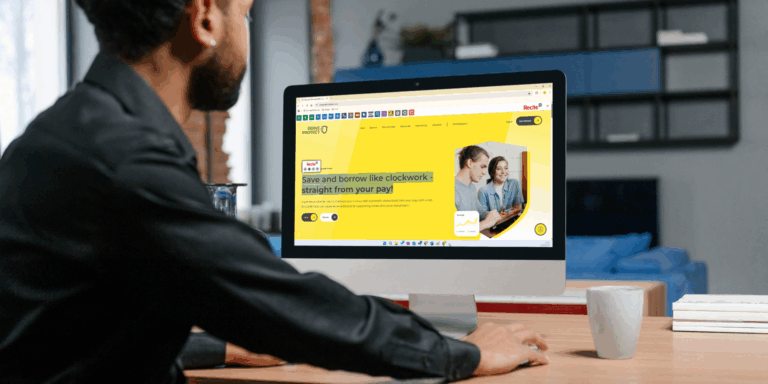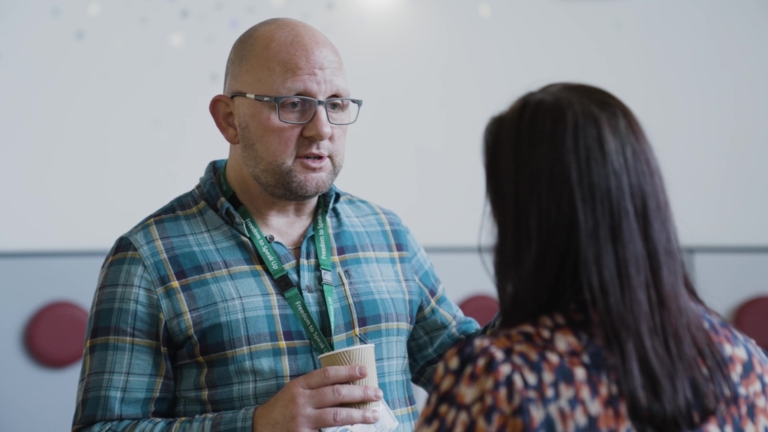Managing money can sometimes feel overwhelming, especially if you’re juggling debts that seem to grow faster than you can handle. For many, the realisation that they have a problem with debt comes too late, when financial options feel limited and stress begins to mount.
But there are clear warning signs and accessible solutions for anyone facing financial challenges, including workers in the public sector. From understanding the indicators of problem debt to finding the courage to seek help, this article equips you with practical advice and resources to take positive steps forward.
Spotting the warning signs of problem debt
Debt often creeps up gradually, making it easy to overlook early warning signs. Identifying these can be the first step in getting back on track. Here are key indicators:
1. High debt-to-income ratio
If a large chunk of your income goes towards repaying debt, it may be unsustainable. Struggling to make payments while covering basic living expenses is a red flag.
2. Difficulty with minimum payments
Falling behind on minimum payments for credit cards, loans, or utilities is a clear warning that your debt is becoming unmanageable. This often leads to reliance on additional borrowing, creating a vicious cycle.
3. Reliance on credit for essentials
If you’re using credit cards or loans to cover everyday costs like groceries, rent, or utilities, it’s a sign of financial instability. Without intervention, this pattern can spiral quickly into a crisis.
4. Depleted savings
A dwindling emergency fund is another indicator to watch. When savings are consistently used to cover routine expenses, you may be edging closer to financial trouble.
No matter where you find yourself on this spectrum, maintaining a regular overview of your finances is vital. While it can be uncomfortable, recognising these patterns will help you take control sooner rather than later.

Who is more vulnerable to problem debt?
Debt affects countless people, but some groups are particularly at risk. Research from the Money and Pensions Service (MaPS) reveals that 15% of UK adults fall into the at-risk category, equating to approximately 8 million people. Groups more likely to seek debt advice include:
- Young adults (under 35) – Younger people often juggle lower incomes and higher living costs, contributing to financial stress.
- Low-income households – Over 75% of those needing debt advice earn less than £30,000 annually.
- Households with children – Higher living costs combined with limited incomes can contribute to mounting debt.
- Ethnic minority communities – Although they make up under 20% of the adult population, these groups represent 31% of those seeking help.
- Renters – Two-thirds facing a debt crisis live in rental properties, where rising housing costs can exacerbate financial challenges.
These findings are supported by our 2025 Financial Resilience Report, which you can read in full here.
Breaking the stigma around debt
It’s natural to feel a sense of shame or failure when dealing with debt, but this leads many people to bury their heads in the sand, delaying help. Surprisingly, only 1 in 4 people needing debt advice reach out to a professional. Yet financial trouble is far more common than many realise—and no one needs to face it alone.
If you can’t tackle things alone, opening up to a trusted partner, family member, or friend can relieve some pressure and help get you back on track. Here are tips to make these conversations productive:
- Know your situation – Be clear about what you owe, to whom, and whether repayments are up to date.
- Clarify what you need – Are you seeking advice, emotional support, or accountability?
- Choose the right time – Find a private, interruption-free moment where emotions aren’t running high.
- Be honest – Share the full financial picture, no matter how difficult, so loved ones can help effectively. Clearing this hurdle can pave the way for support and solutions.

Steps to manage problem debt
Once you’ve acknowledged the issue, taking informed action is crucial. Here’s where you could start:
1. Create a detailed budget
Budgeting gives clarity on where your money is going and ensures you’re allocating it effectively. It’s a simple yet powerful tool to regain control.
2. Prioritise bills
Debt can feel overwhelming, but not all bills carry equal weight. Essential bills like rent, mortgage, utilities, and council tax must come first. Using tools like MaPS’ bill prioritisation tool will help you plan effectively.
3. Access free debt advice
Never be afraid to ask for help. Speaking with expert advisers can give you a clear path forward and help you discover entitlements or benefits you might have missed.
Free, regulated and ethical debt support resources
Several trusted services offer free and confidential advice:
- Money and Pensions Service (MaPS) – MaPS helps connect you with licensed advisers who won’t charge for their services.
- Citizens Advice – Provides clear guidance on financial matters.
- StepChange – Specialises in creating tailored debt support plans.
- Christians Against Poverty – A charity offering holistic support for those struggling.
Breathing space scheme
The UK Government’s Breathing Space scheme offers two forms of temporary financial reprieve:
- Standard Breathing Space – A pause on creditors collecting payments, allowing time to organise your finances.
- Mental Health Breathing Space – Extra safeguards for those receiving mental health crisis treatment.
These programs may not resolve your situation but can buy you the time needed to create a sustainable solution.
Be wary of unethical online advice
While there’s plenty of debt advice online, not all of it is reliable. Misleading claims about quick fixes, particularly surrounding Individual Voluntary Arrangements (IVAs), often target vulnerable individuals.
IVAs are appropriate in select situations but carry risks, including high fees. Avoid solutions that seem too good to be true and stick to advice from trusted experts. Remember, not everyone claiming to be an expert on TikTok has your best interests at heart.
Moving forward with confidence
Dealing with problem debt can be daunting, but support is always available. Seek help early and take small, manageable steps to regain control of your finances. Whether you’re experiencing challenges linked to public sector debt, facing stigma, or struggling to spot the signs, know that you’re not alone. Ethical and free advisers from MaPS, StepChange, and others are ready to help you.
For more information on dealing with problem debt, watch our conversation with Paul Fox from the Money and Pensions Service in the video at the top of this page.
- The information provided is for guidance and educational purposes only. Serve and Protect CU does not offer regulated financial advice. Please seek independent financial advice.




